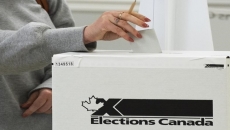OTTAWA - The Liberal government will give community organizations $18 million over the next four years to help people navigate the process of applying for a criminal pardon.
The newly announced move is the latest step in a federal plan to make pardons, formally known as record suspensions, less expensive and more accessible.
Public Safety Minister Marco Mendicino says the money will go to organizations active in corrections, conditional release and community reintegration.
For too many law-abiding Canadians who’ve served their sentences, a criminal record carries a stigma that can block them from housing, employment and more.
— Marco Mendicino (@marcomendicino) February 3, 2022
Helping them get a pardon removes a barrier standing in the way of fully reentering society. https://t.co/ezVKGi4pGl
The funding is intended to help ensure applicants have access to the right information and resources, as well as reduce reliance on private, for-profit companies that charge fees.
The money will flow through the Grants and Contributions Program to National Voluntary Organizations, with a call for groups to seek funding until March 18.
The government acknowledges there are many Canadians who have served their sentences and are living law-abiding lives, but face stigma and barriers because they have a criminal record.
"Furthermore, lingering criminal records have led to the over-representation of Indigenous, Black and other racialized individuals in our criminal justice system," Public Safety Canada says.
A record suspension can open the door to meaningful work, housing, education and volunteer opportunities, helping people become productive members of society, it adds.
However, critics have long said the process of obtaining a suspension is too expensive, lengthy and complex.
In December, the government announced the federal fee to apply for a record suspension would drop to $50 from almost $658 as of the new year.
A bill that was introduced in June, but died with the dissolution of Parliament at the summer election call, proposed to undo measures brought in by Stephen Harper's Conservatives that made people wait longer for a record suspension.
Dozens of civil society groups are urging the federal Liberals to go even further and fundamentally revamp the system by automatically sealing a person's criminal record once they have completed their sentence and lived in the community without new convictions.
The government says it is exploring the automated sequestering of some criminal records for those living crime-free, through consultations with provinces, territories, municipalities and other parties.






